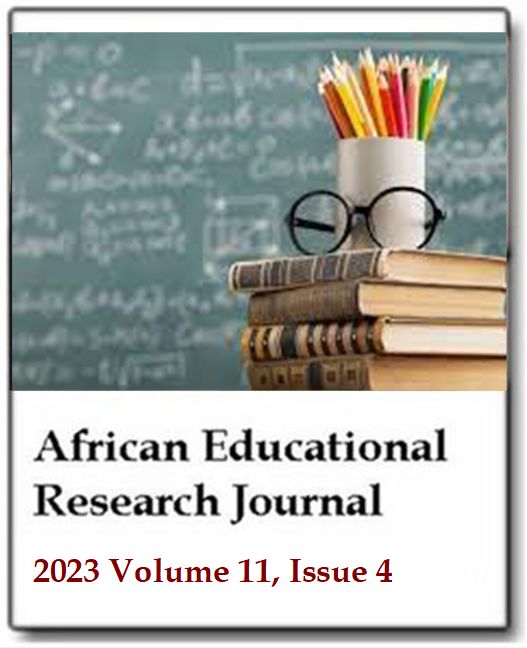Factors affecting academic performance of students at the University of Burao (UOB), Somaliland
Mohamed Ahmed KunleAfrican Educational Research Journal
Published: November 1 2023
Volume 11, Issue 4
Pages 588-595
DOI: https://doi.org/10.30918/AERJ.114.23.062
Abstract
The academic performance of students has been a subject of interest for educational researchers for a while; however, most of the research in this area was done outside of Somaliland. Therefore, this study examined factors affecting the academic performance of students in Burao, Somaliland. The study aimed to investigate the influence of employment status, learning style preference, test anxiety, and English communication problems on the students’ GPAs. The undergraduate students of the University of Burao participated in this study. Using stratified sampling, 333 students were chosen from six different faculties, and data was gathered by a questionnaire. The response rate was 69%, so data from 230 students were analyzed using a Binomial logistic regression with the help of SPSS 21. The result indicated that employment status has no significant effect on students’ GPAs, while the other three variables had effects on it. Regarding the influence of learning style preference, the students with auditory learning styles had 3.0 times higher odds of achieving higher grades than students with visual learning styles. The study also discovered that for every one-unit increase in test anxiety, students were 0.56 times less likely to achieve higher grades. Moreover, for every one-unit increase in English communication problems, students were 0.63 times less likely to achieve higher grades. In short, of the four predictor variables, only learning style preference, test anxiety, and English communication problems affected students’ GPAs in different ways. Therefore, the study made several recommendations including the use of various lecture delivery techniques by lecturers and the development of an English communication policy by the university.
Keywords: GPA, employment status, learning style preference, test anxiety, English communication skills.
Full Text PDFThis article is published under the terms of the Creative Commons Attribution License 4.0

